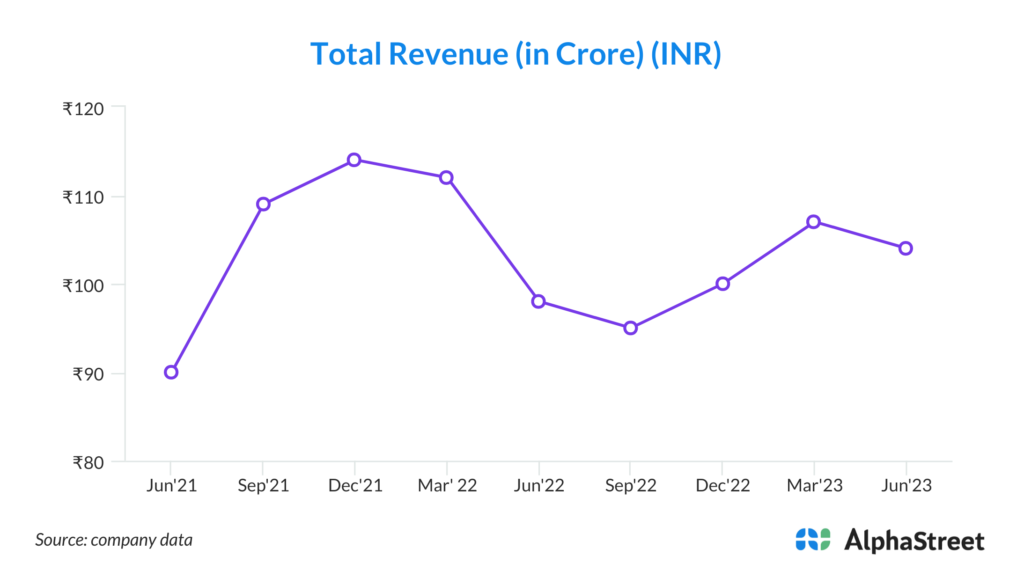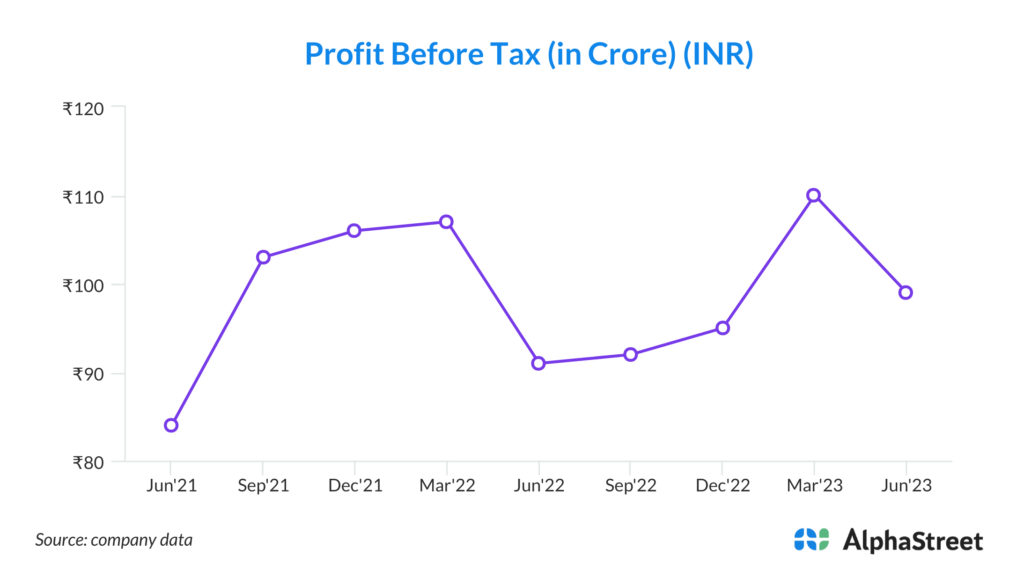Stock Data:
| Ticker | NSE: IEX |
| Exchange | NSE |
| Industry | EXCHANGE |
Price Performance:
| Last 5 Days | – 3.32 % |
| YTD | -7.91 % |
| Last 12 Months | -10.94 % |
Company Description:
India Energy Exchange is India’s premier energy trading platform, facilitating efficient, transparent, and competitive electricity and renewable energy trading. With over 15 years of operation, IEX has played a pivotal role in India’s evolving energy landscape. It offers a dynamic marketplace for buyers and sellers to transact electricity, supporting the growth of diverse industries, from manufacturing to services. IEX also champions sustainability, enabling the trading of renewable energy certificates and aligning with India’s ambitious non-fossil fuel targets. Committed to innovation, IEX continues to expand its product portfolio, providing cutting-edge solutions for India’s energy transition and economic growth.

Critical Success Factors:
1. Sustained Economic Growth: India’s sustained economic growth, with a projected baseline GDP growth of 6.5% in real terms for the fiscal year ’24, is a fundamental strength for IEX. A growing economy implies increased energy demand, both from the industrial and commercial sectors. This consistent growth provides a stable foundation for energy trading on the exchange.
2. Increased Manufacturing Activity: The data reveals that India’s manufacturing sector is experiencing significant growth, with an average manufacturing purchase PMI of 57.9% in Q1 ’24. This reflects a healthy industrial environment with increased production and demand for electricity. IEX benefits from this trend as it provides a platform for manufacturers to procure and trade energy efficiently.
3. Robust Services Sector: India’s services sector, characterized by a PMI of 60.6% during the quarter, plays a vital role in the country’s electricity consumption. The services sector includes a wide range of industries, from IT and healthcare to hospitality and finance, all of which rely on a stable and efficient supply of electricity. IEX, as a reliable energy trading platform, can cater to the diverse needs of this sector.
4. Renewable Energy Growth: India’s status as the fourth-largest renewable energy generator in the world is a significant strength for IEX. With the government’s commitment to add an additional 120 gigawatts of renewable energy capacity, IEX has a substantial market for trading renewable energy certificates and facilitating green energy transactions. This aligns well with global sustainability trends.
5. Transition to Non-Fossil Fuels: India’s target of achieving 50% of energy consumption from non-fossil fuel sources by 2030 is a compelling strength for IEX. As the country moves towards cleaner energy sources, the exchange can facilitate the trading of renewable energy certificates and power generated from non-fossil fuel sources. IEX’s green market products and certificates can support this transition.
6. Stable Energy Supply: Adequate power supply and lower prices during the summer season due to proactive government measures and cooler-than-expected weather conditions are favorable for IEX. A stable energy supply ensures that the exchange can meet the energy demands of its participants consistently.
7. Reduced Coal Prices: The decline in coal prices, both domestically and for imported coal, is advantageous for IEX. Lower input costs can lead to more competitive electricity prices, attracting more participants to the exchange and increasing trading volumes.
8. Regulatory Support: Regulatory initiatives, such as the proposed key recommendations for the development of the electricity market in India and the formation of India’s first domestic regulated carbon market, are positive indicators for IEX. These developments can create a conducive environment for energy trading and attract new players to the market.

Key Challenges:
1. Market Dependency on Economic Growth: IEX’s performance is closely tied to India’s economic growth. Any significant economic downturn or recession can lead to reduced energy demand, impacting trading volumes and revenue for the exchange.
2. Fluctuating Energy Prices: Energy prices can be highly volatile due to factors such as fuel prices, weather conditions, and geopolitical events. Sudden and severe price fluctuations can affect market participants and may result in reduced trading activity.
3. Competition from Alternative Energy Sources: As renewable energy sources become more competitive, some consumers and businesses may opt for off-grid or distributed energy generation, reducing their reliance on centralized power exchanges like IEX.
4. Regulatory Changes: Frequent regulatory changes in the energy sector can introduce uncertainty for market participants. Shifts in policies related to pricing, tariffs, or renewable energy incentives can impact IEX’s business model and profitability.
5. Supply Side Disruptions: Unexpected disruptions in power generation, such as natural disasters or equipment failures, can lead to supply shortages and instability in the market. This may result in sudden price spikes and affect the credibility of the exchange.
6. Technological Risks: The reliance on technology for trading and clearing operations exposes IEX to cybersecurity threats. Data breaches or system failures can disrupt trading activities and erode trust among market participants.
7. Market Monopoly Concerns: Concerns about IEX holding a dominant position in the energy exchange market may lead to regulatory scrutiny or calls for increased competition. Regulatory actions aimed at reducing monopolistic tendencies could impact the exchange’s market share.
8. Environmental Regulations: Stricter environmental regulations or changes in carbon pricing mechanisms may impact the competitiveness of fossil fuels on the exchange. A rapid shift away from fossil fuels could lead to stranded assets and financial challenges for IEX.
9. Global Energy Market Dynamics: IEX’s operations can be influenced by global energy market dynamics, including fluctuations in international oil and gas prices, geopolitical conflicts, or global energy supply disruptions. These factors can have a cascading effect on the Indian energy market.
